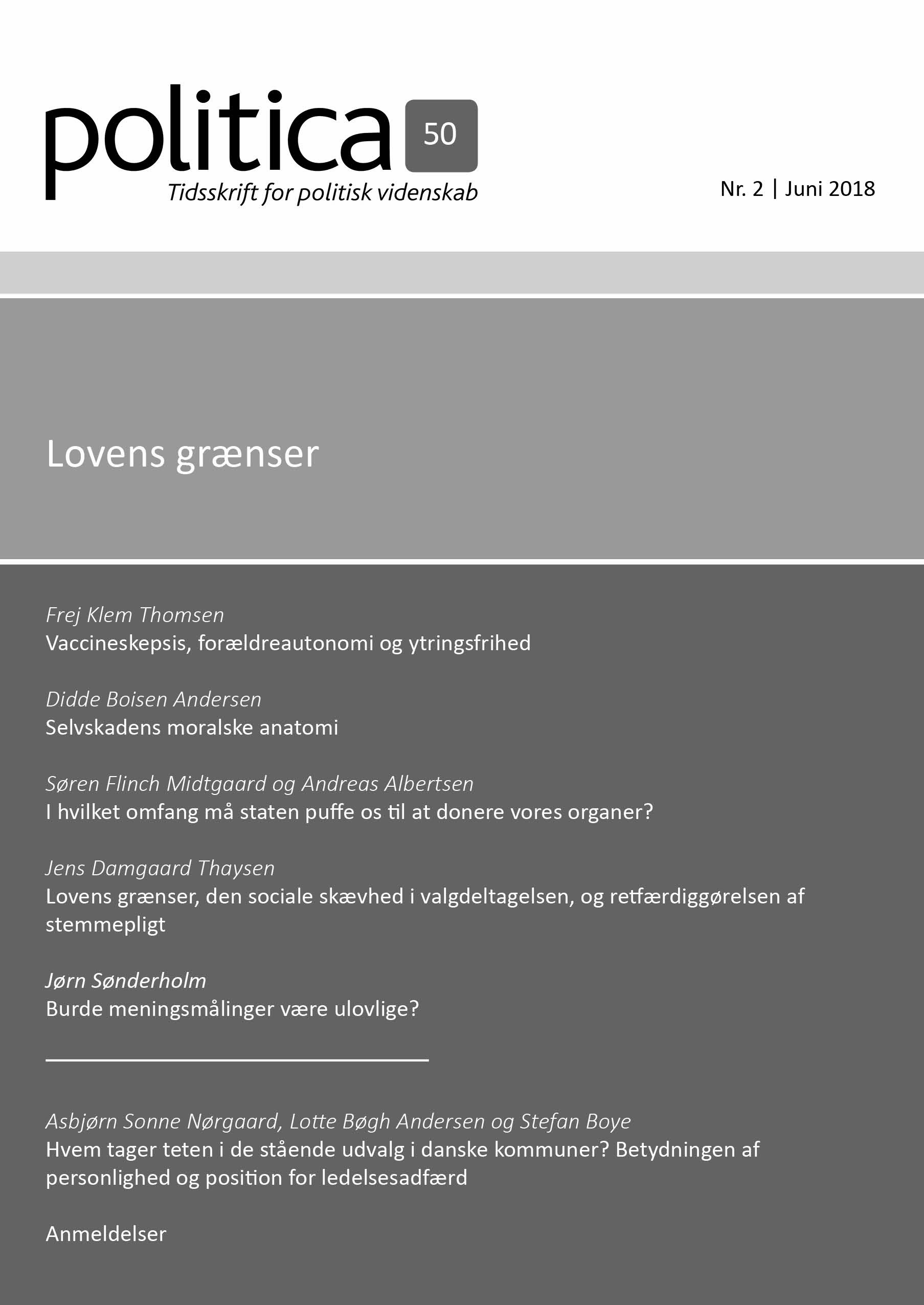Organ donation and nudging
DOI:
https://doi.org/10.7146/politica.v50i2.131203Resumé
For many, receiving an organ transplantation is the only viable way to prolong their lives and increase their quality of life. However, the demand for organs exceeds supply. Are there efficient and ethically acceptable ways of increasing the number of organ donors? Recently, nudging has been proposed as an attractive policy instrument. Nudging eschews coercing people. It affects instead the choice architecture within which people make their choices. Still, autonomy concerns arise. Accordingly, we have to make a difficult trade-off between augmenting people’s welfare, on the one hand, and respecting their autonomy on the other. An opt-out system in which people count as donors unless they state otherwise is, however, likely to increase donations considerably, and to do so at acceptable costs in terms of infringements on autonomy.
Publiceret
Citation/Eksport
Nummer
Sektion
Licens
LicensOphavsretten tilhører Politica. Materialet må ikke bruges eller distribueres i kommercielt øjemed.





